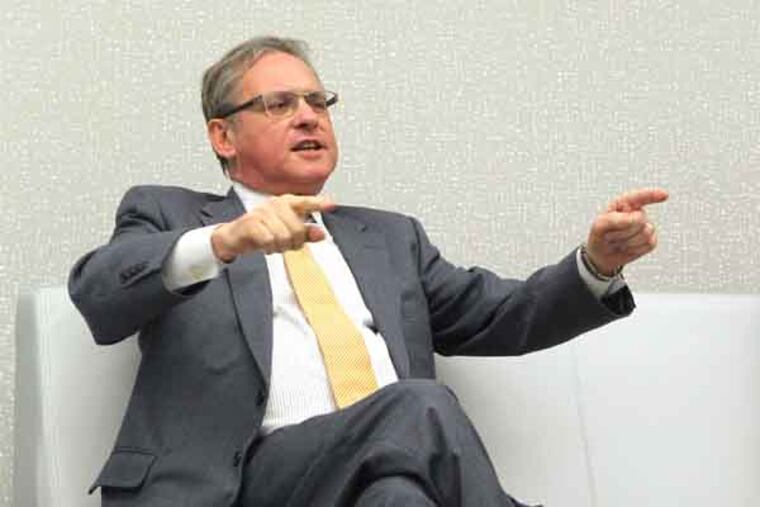Controller: Can 'anchors' spend more in Phila.?
PHILADELPHIA City Controller Alan Butkovitz wants to leverage the purchasing power of the city's colleges and hospitals to spur a "buy local" movement that would create more of the good-paying blue-collar jobs long lacking in Philadelphia.

PHILADELPHIA City Controller Alan Butkovitz wants to leverage the purchasing power of the city's colleges and hospitals to spur a "buy local" movement that would create more of the good-paying blue-collar jobs long lacking in Philadelphia.
After teasing his proposal during his inauguration to a third term in office Monday, Butkovitz released a report Thursday showing that the city's 18 universities and colleges and 16 hospitals spend $5.3 billion a year on goods and services.
These "anchor institutions," tied to the city by large campuses and building complexes, spend $2.7 billion of that with city businesses.
Butkovitz estimated that if the anchors increased their local spending by 25 percent, it would create 4,400 jobs.
"We need to connect our history of making things with those large institutions that purchase things," he said.
Other cities have tried similar programs - Butkovitz cited Cleveland and Detroit - and some Philadelphia institutions have a history of encouraging local businesses, particularly the University of Pennsylvania and Drexel University.
The two schools helped develop a West Philadelphia-based office-supply vendor, Telrose Corp., which has grown steadily since 1995 and has a partnership with Office Depot to supply the schools.
Butkovitz called Telrose "a precedent" for the model he's proposing, and said Penn and Drexel had "expressed a great deal of interest" in his idea to expand local buying.
Lucy Kerman, Drexel's vice provost for university and community partnerships, said in a statement that the university was "delighted" to see Butkovitz's report.
We "look forward to working with our fellow anchors in the coming months to take these findings to the next level," she said.
Marie Witt, vice president for business services at Penn, said in a statement that the university's "procurement efforts are focused not only on buying from local businesses, but on helping businesses develop the infrastructure and capacity to provide quality services to Penn and other large purchasers."
But that kind of model might not work for all the institutions. A Temple University official said the school must concern itself with keeping costs down.
Temple spent $44 million with Philadelphia businesses last year and "would welcome more opportunities to support city firms," said its chief financial officer, Kenneth Kaiser.
"But as a public university, we must follow a bid process," he said. "Our first responsibility is always to control costs in order to keep Temple affordable."
Butkovitz, a possible mayoral candidate in 2015, acknowledged that suppliers and manufacturers of goods would have to be competitive on their own - he doesn't envision a program propped up by government subsidies.
"We believe that Philadelphia has a future in manufacturing and high-end production," he said. "The suppliers are going to have to be in range on the price side and the convenience side."
Butkovitz called Thursday's report a "macro" study on what the anchor institutions spend. The next steps will be to identify areas where they are frustrated by a lack of local options, then "figure out what we need to do to make it possible for suppliers to fill that space."
"Are there particular financing measures that are necessary? Do we have to help people with training of workers?" he said. "There will be a host of issues and I don't think you can identify that at the outset."